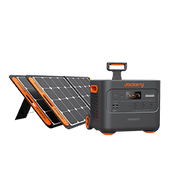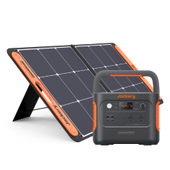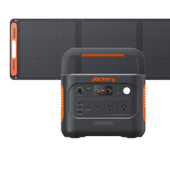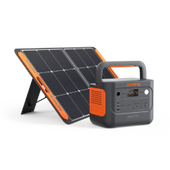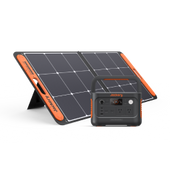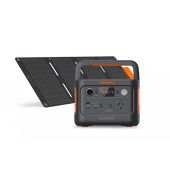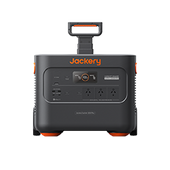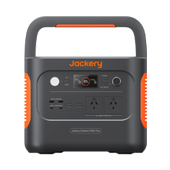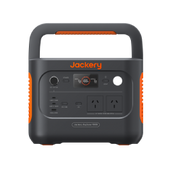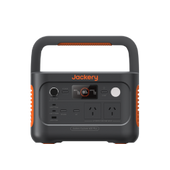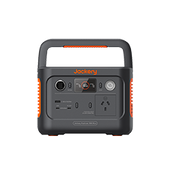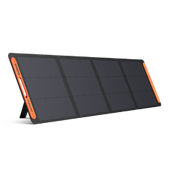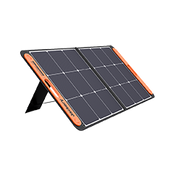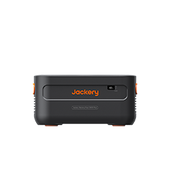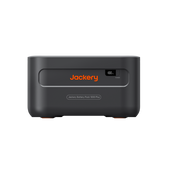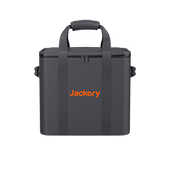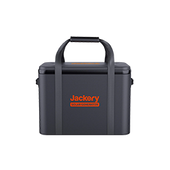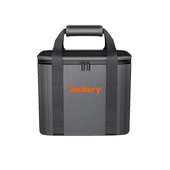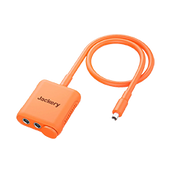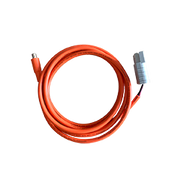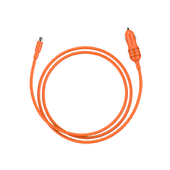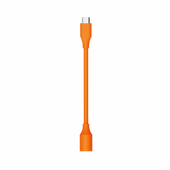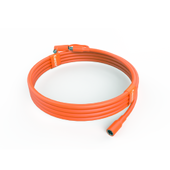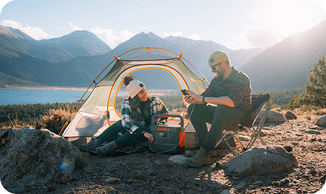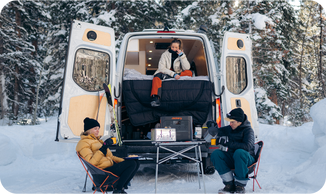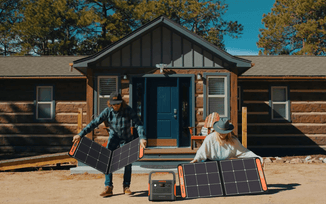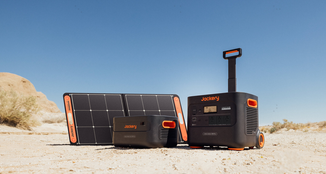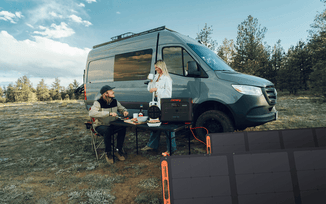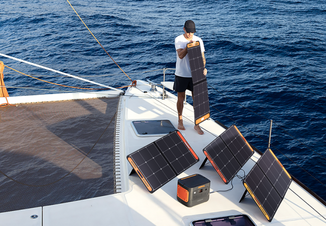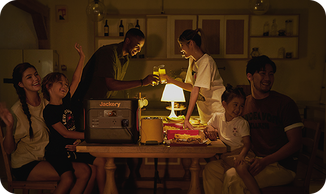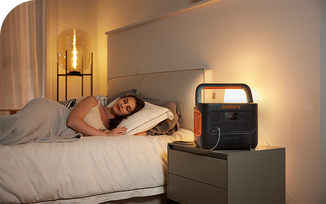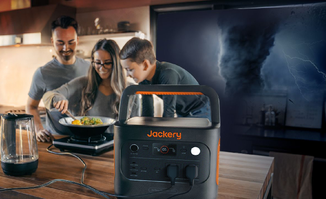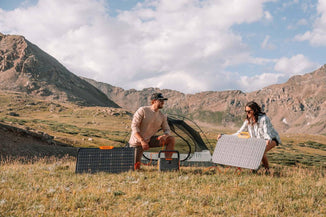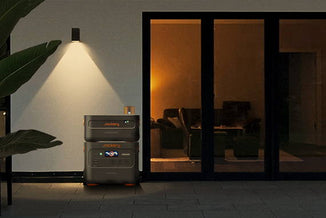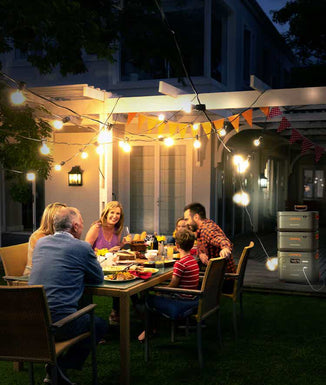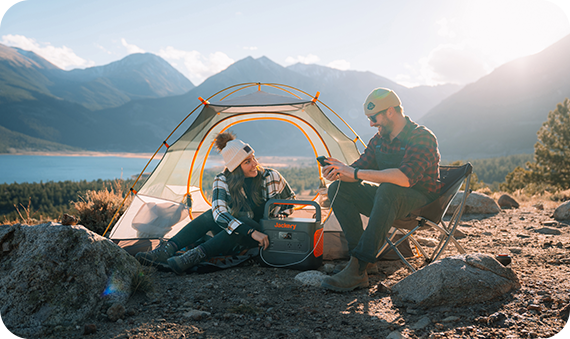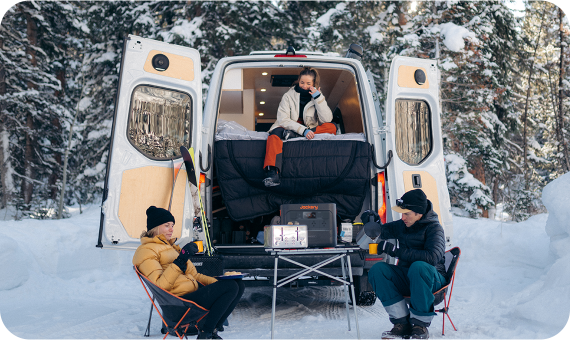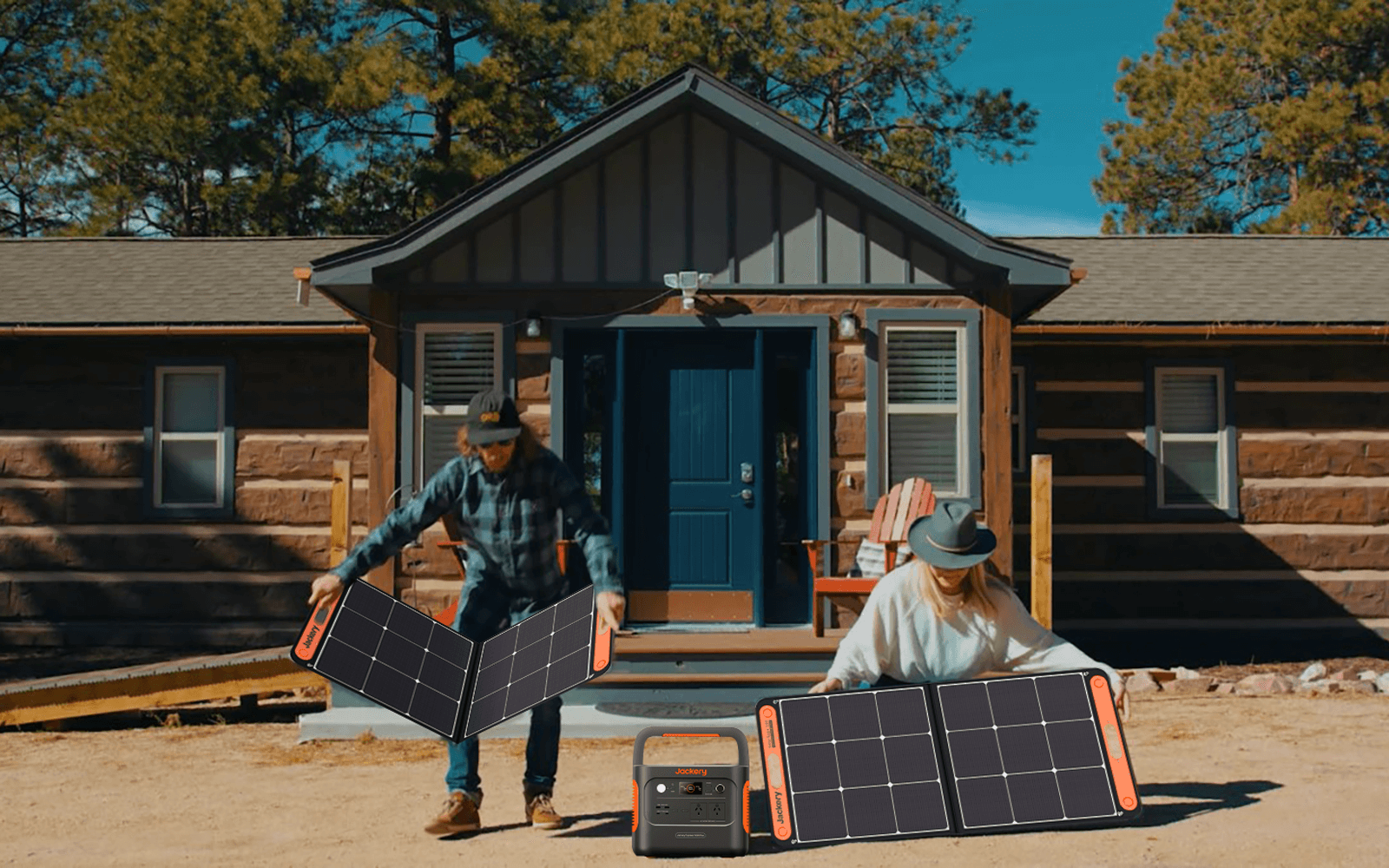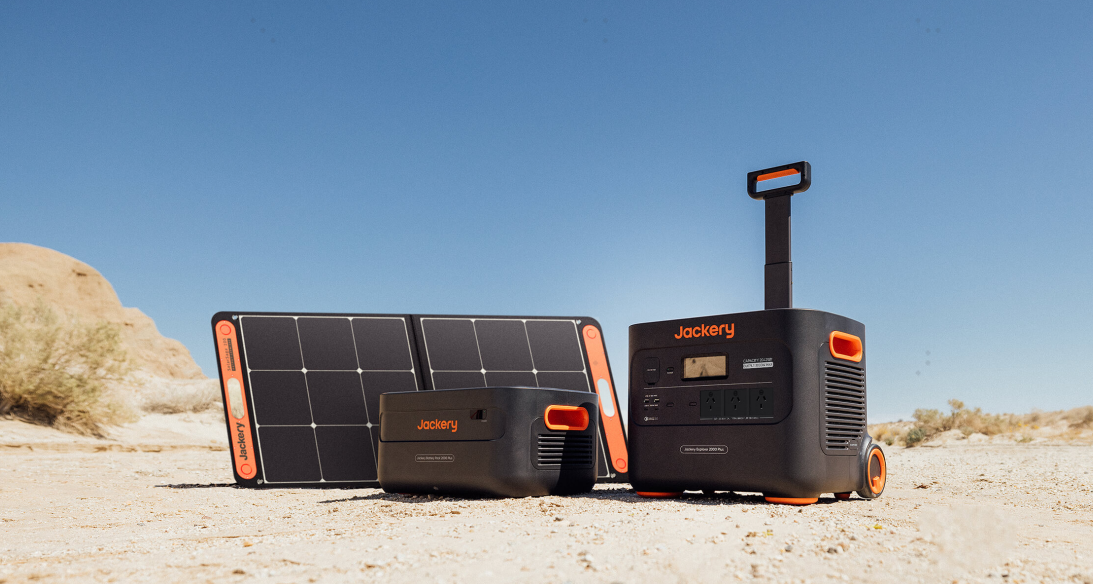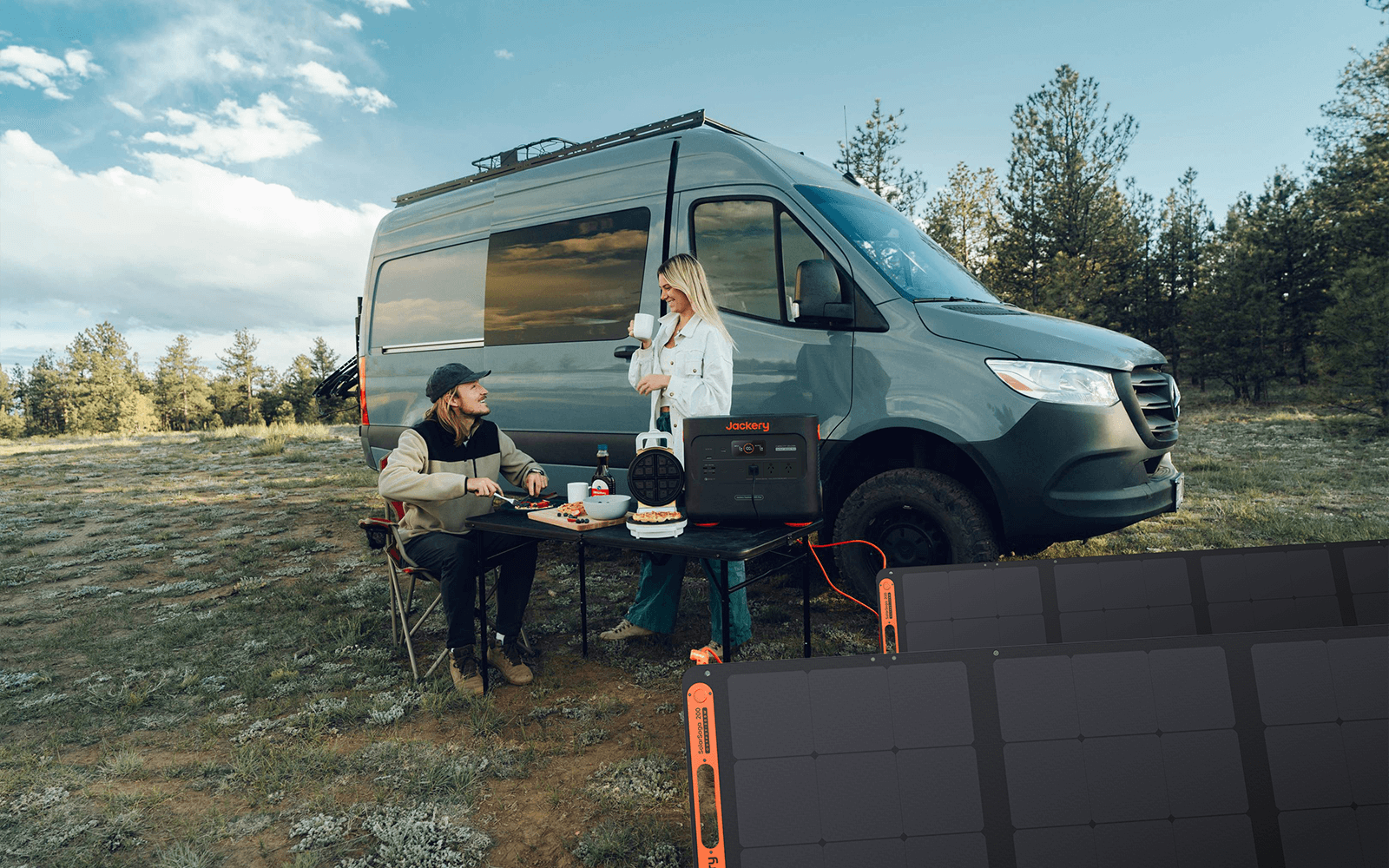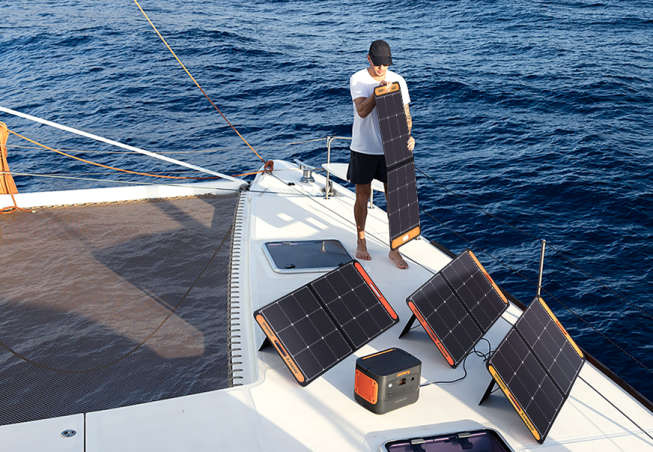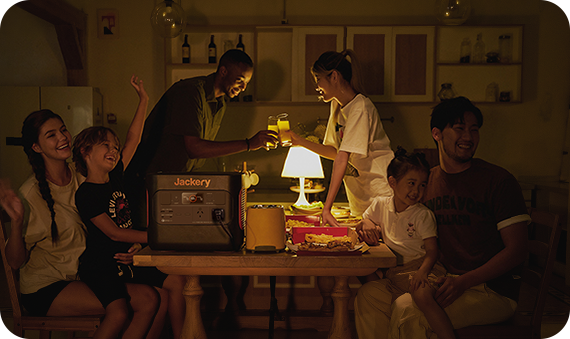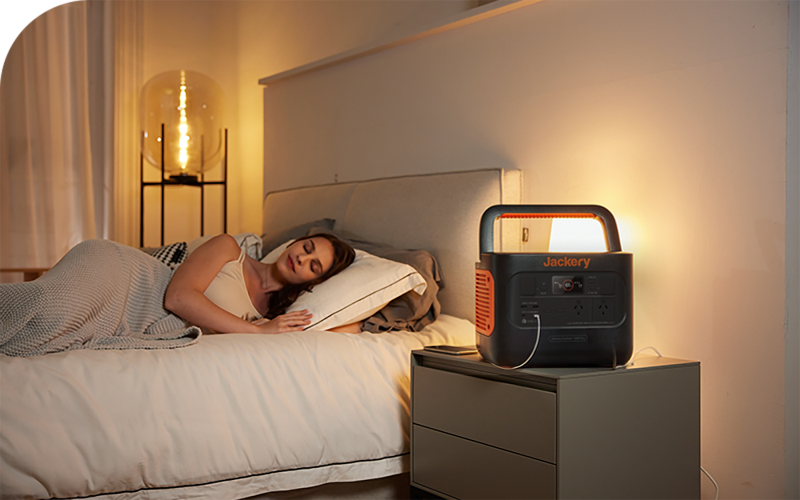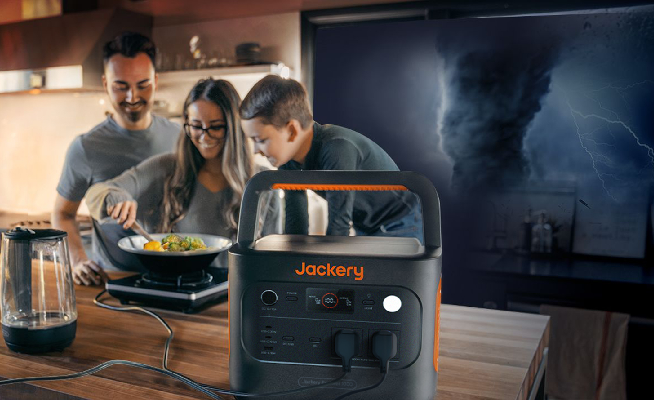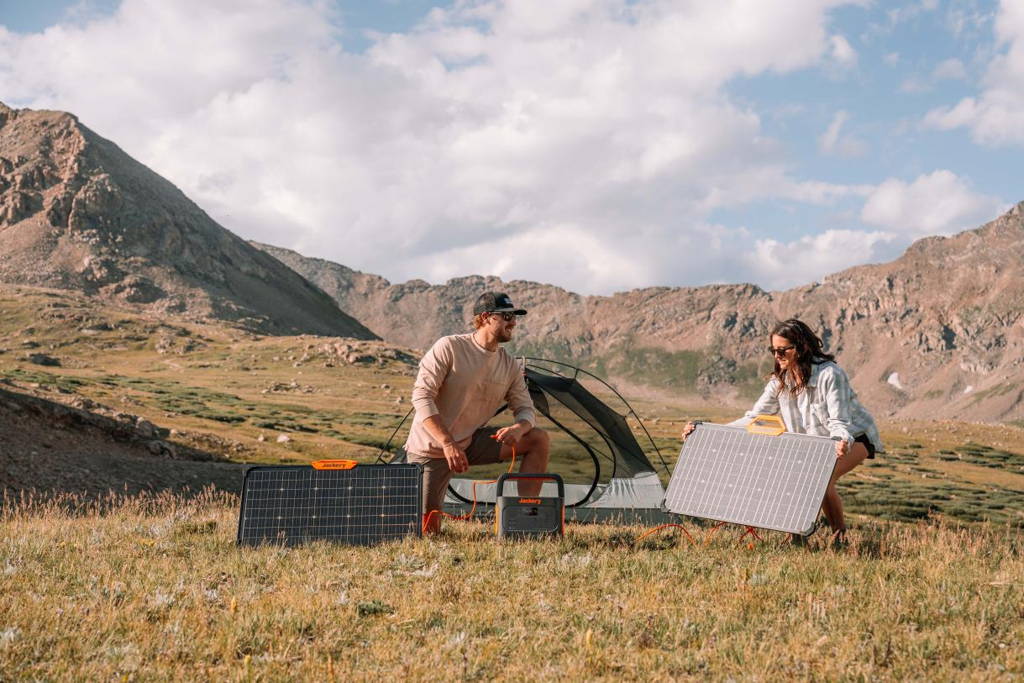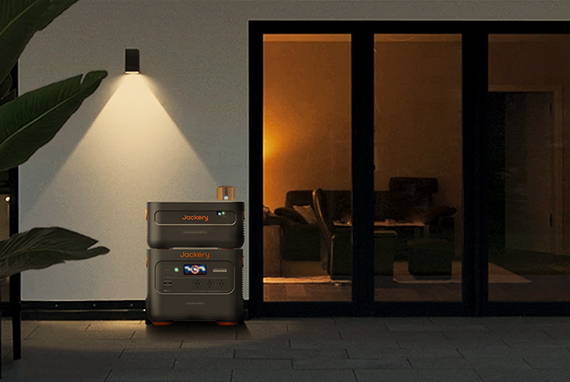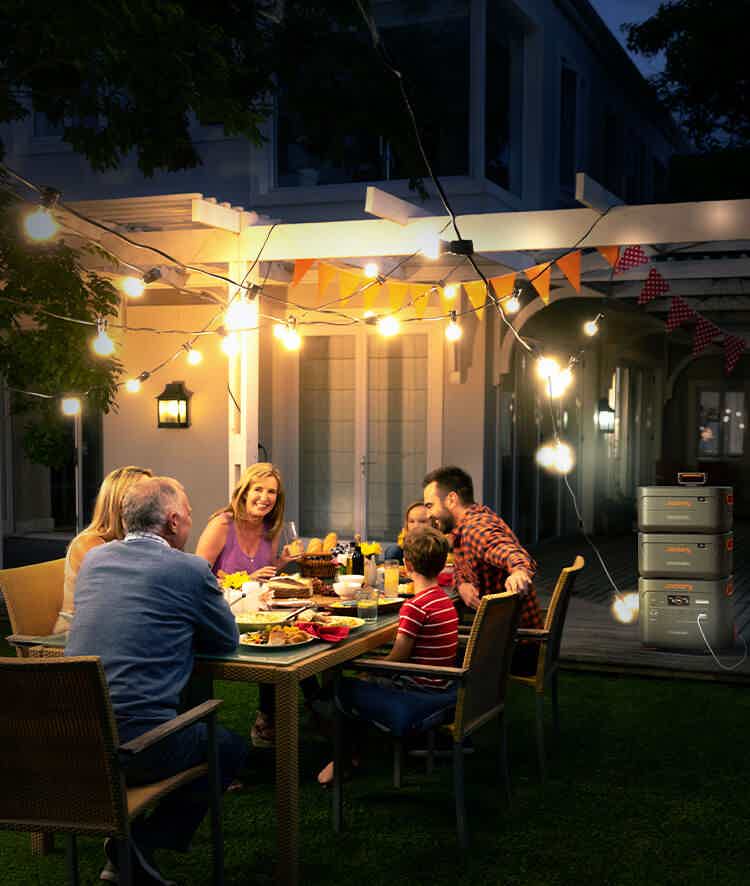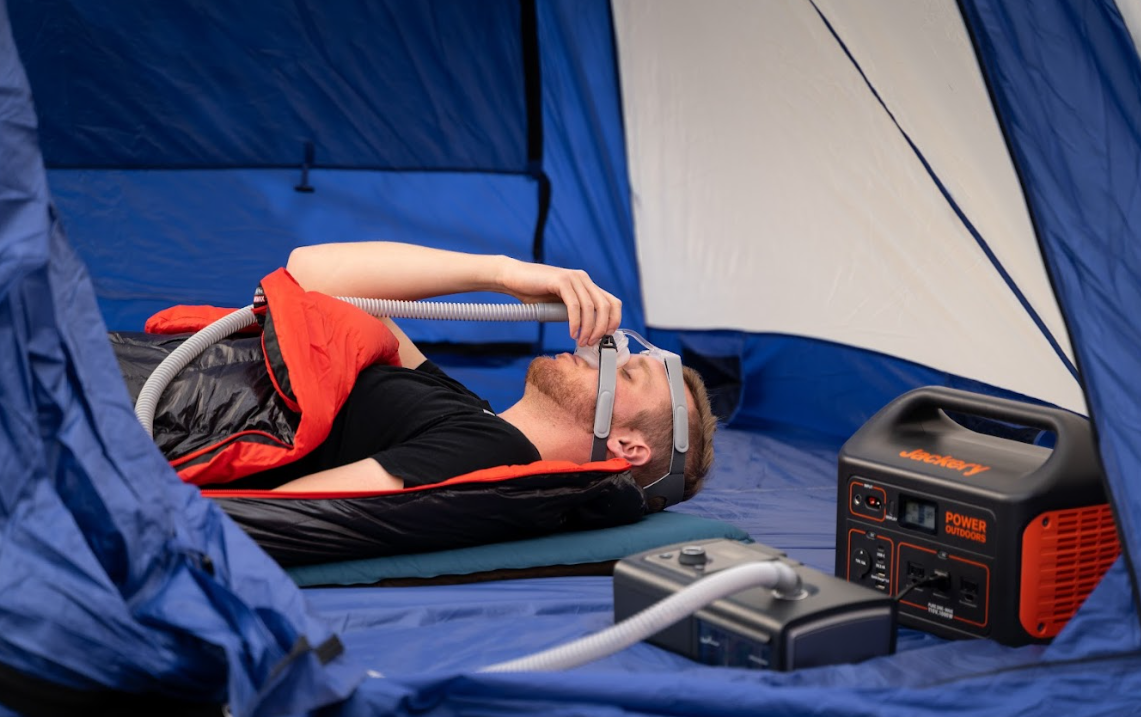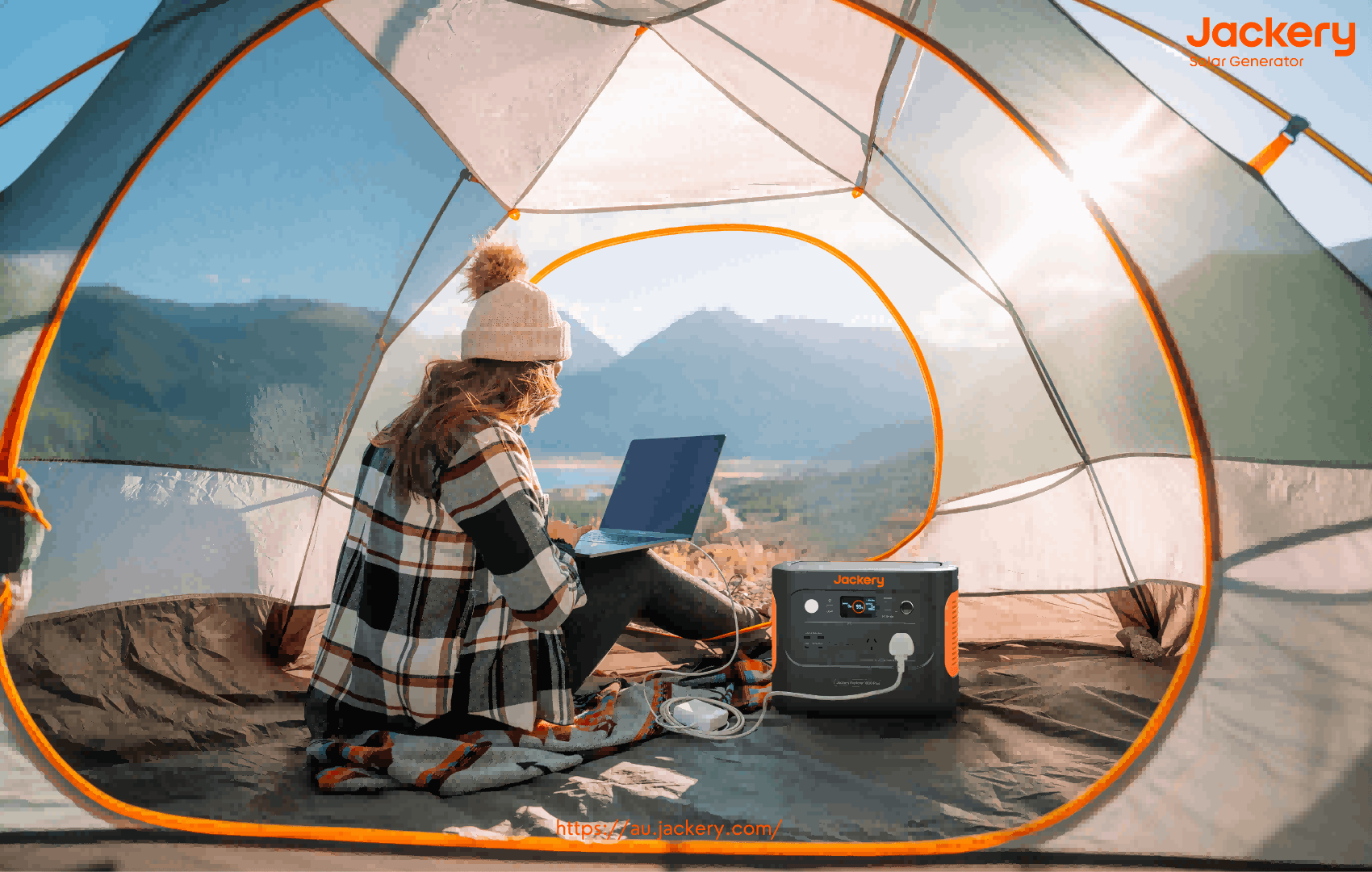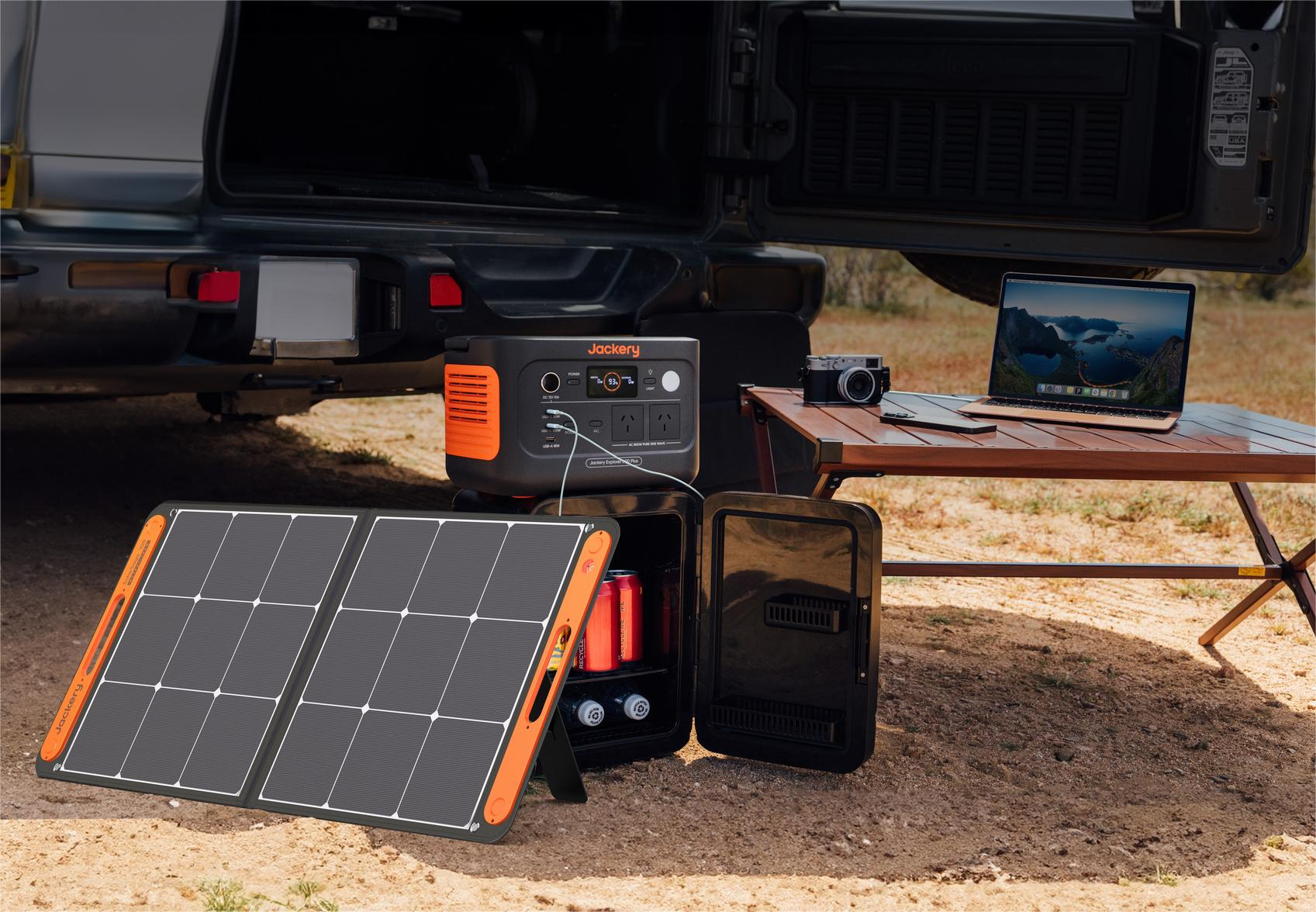How CPAP Can Be Used in Off-Grid Camping
Using Deep-Cycle Lead-Acid Batteries
Deep-cycle lead-acid batteries power a CPAP machine while off-grid camping. They are built for continuous discharge. It implies that they can provide sustained power for long-term use by CPAP users.
However, deep-cycle lead-acid batteries are bulky, disadvantaging those prioritizing portability. For example, a 100Ah deep-cycle battery may weigh around 60-70 pounds. While they provide long-lasting power to run a CPAP for nights without recharge, their size and weight can limit their use in off-grid camping for mobility. They also require regular checking of electrolyte levels and proper charge cycles to maximize their life. It might be a hassle during a camping trip.
Another downside is the inefficiency during the recharge process. Deep-cycle lead-acid batteries can take hours to recharge even with a solar electric generator if weather conditions are unfavourable for solar panels.
Further, the inefficiency of such batteries means that much of the stored energy is lost as heat, which is not an ideal option. On the other hand, one of their advantages is their low upfront cost.
Despite the inconvenience of their size and charging inefficiency, their affordability and handiness benefit off-grid CPAP users. It's worth noting that these batteries are not suitable for those needing a quiet generator setup. Their recharging may require an external inverter, which can lower the tranquillity of a natural camping environment.
Using CPAP Machines with Built-In Batteries
CPAP machines with built-in batteries are efficient for camping. They avoid carrying separate deep-cycle batteries. The machines with integrated lithium-ion batteries are portable for off-grid scenarios.
Some models may provide up to two nights of usage on a single charge, depending on the pressure settings and usage hours. They also recharge with a portable solar electric generator for off-grid power management. Such machines might include power-saving automatic shutoff when not in use and humidifier modes that cut power consumption to outspread battery life.
A downside is their limited battery capacity. For longer camping trips, a supplementary CPAP battery for camping might be needed, which adds extra weight and cost. Also, most built-in battery models have fewer features than their AC-powered counterparts. They can sacrifice humidification and heated tubing. It could be a compromise for those counting on these features for sleep.
Another concern is their compatibility with charging methods. The travel CPAP machine with battery might be incompatible with solar electric generators. It can be an issue if users already have camping gear.
Yet, when the machines work well with a solar-powered quiet generator setup, they are portable for campers, prioritizing minimal equipment and hassle-free operation.
Using a Portable Solar Generator
A portable solar generator is the most flexible and sustainable solution to power CPAP machines while camping. They combine a battery power station with solar panels for clean, renewable energy without external power grids.
A solar electric generator can recharge during the day while the sun is out and run the CPAP at night for long camping trips. Most CPAP users prefer portable solar generators because they deliver quiet, emission-free operation for the natural tranquillity of a camping trip.
Examples like the Jackery Explorer are popular for their compatibility with CPAP machines, lightweight designs, and performance. CPAP machines with built-in lithium-ion batteries may run overnight, depending on the generator and settings.
They are excellent for campers pursuing a quiet generator set up in remote locations for a peaceful environment. The eco-friendliness, quiet operation, and independence from fuel-based systems stand to power a CPAP machine in the wild.
Power Consumption of CPAP with One Night (8H)
With some helpful pointers, we go over how to get the most out of a CPAP machine while camping.
Determine Your Power Requirements
To pick the best solar electric generator for your next outdoor adventure, calculate how much power your electronics need. Model, pressure setting, and humidifier usage may determine how much power a portable CPAP for camping uses. Most CPAP devices use between 30 and 60 watts per hour.
In addition, it is essential to examine the power consumption standards of the specific model of CPAP machine you are using. You should also take into account the use of extra features, including a humidifier and heated tubing, which may increase power consumption.
Using a Humidifier
Using the humidifier function on the CPAP machine will increase its power consumption, adding to its weight and size. How much energy a humidifier contributes to CPAP machine power consumption depends on factors, including type and humidity levels. Heated humidifiers, which use heating elements to warm water for humidity, require more power than passover humidifiers, which utilize CPAP machine airflow to pass over a wet wick or sponge for humidity.
Over an hour, a heated humidifier may use 25–35 watts. It indicates a CPAP machine (uses 30-60 watts per hour) with a heated humidifier would require 55 to 95 watts per hour on average. Note that reducing the device's power output is important for using the CPAP for longer journeys.
Number of Nights the Portable Solar Generator Supports CPAP
Powering CPAP with the Jackery Solar Generator 600 Plus
Many factors matter when using a CPAP machine with our Jackery Solar Generator 600 Plus. It offers an 800W output with a 632Wh capacity, which can support CPAP machines for multiple nights depending on the power consumption of the device.
Let's break down the calculations.
If a CPAP machine consumes between 30 and 60 watts per hour without a humidifier or heated tubing, the Jackery Solar Generator 600 Plus could run it through AC outport for:
Hours = capacity * 0.85/watt (the 0.85 is for the average 15% of conversion loss)
=632Wh*0.85/30W~60W
=9.0H~17.9H
Dividing the 8H sleep, the number of nights will be 1.1 to 2.3.
So, the Jackery Solar Generator 600 Plus can charge a CPAP without a humidifier for 1.1 to 2.3 nights before recharging.
Nonetheless, a humidifier increases power usage. With a heated humidifier drawing an additional 25 to 35 watts per hour, total consumption can rise to 55-95 watts per hour.
In this circumstance, the Jackery Solar Generator 600 Plus would run the CPAP for:
Hours = capacity * 0.85/watt (the 0.85 is for the average 15% of conversion loss)
=632Wh*0.85/55W~95W
=5.7H~9.8H
So it may support the operation of a CPAP with humidifier with 0.7~1.2 nights when it is fully charged. Importantly, our solar electric generator allows solar recharging in 4.3 hours with dual 100W panels for constant use during longer trips. Given the quiet generator operation, the CPAP battery for camping setups is unobtrusive to keep noise levels below 22.
Powering CPAP with the Jackery Solar Generator 300 Plus
Our Jackery Solar Generator 300 Plus, with its 288Wh capacity and 300W output, is more compact but capable of short-duration CPAP use.
The calculation is similar to what we did above. This unit can power a standard CPAP machine for about 4.1H~8.1H, approximately 0.5 to 1 night.
While it suits brief camping trips, a heated humidifier would decrease runtime. A humidifier boosts hourly consumption by 25-35 watts, which shortens working time to less than one night.
However, the portability of the Jackery Solar Generator 300 Plus, with its fast-charging options, including a 6.3-hour solar charging time via the 80W panel, is ideal for critical mobility scenarios.
Such a quiet generator can power indispensable devices during short outdoor adventures despite its small size. It offers a reliable CPAP battery for camping with timely solar recharge intervals.
Additional Features of Jackery Solar Generators
Jackery Solar Generator 600 Plus

The Jackery Solar Generator 600 Plus is built for users who require unswerving and powerful energy in a portable form. With an 800W output and a 632Wh capacity, this solar electric generator delivers power for CPAP machines, outdoor appliances, and gear during camping trips. For longer adventures, its full recharge in 1.6 hours through wall charging or 4.3 hours using dual 100W solar panels is ideal. The LiFePO4 battery extends its life to 4,000 cycles for reliability for years.
Importantly, the UPS functionality with a 20ms switch time safeguards CPAP machines or refrigerators in power outage scenarios. The emergency supercharging mode allows full recharge in 1 hour for unexpected needs. With its quiet generator operation at less than 22dB, the unit curtails disruption in overnight scenarios like camping with a CPAP. The smart app control also adds flexibility for users to adjust settings remotely. At only 7.3 kg, the lightweight design guarantees it's easy to carry for portability with features for recreational and emergency use.
Jackery Solar Generator 300 Plus

The Jackery Solar Generator 300 Plus is compact and proficient for ultra-portability without sacrificing efficiency. It provides a 300W output and 288Wh capacity for short trips or users with slight power needs. This solar electric generator can power CPAP machines, smartphones, laptops, and devices through dual 100W USB-C outputs. Solar, wall, car, and USB charging add adaptability across situations. Similarly, it can recharge in 2 hours via wall power, which renders it fast and energy-efficient. Its LiFePO4 battery gives a 3,000-cycle life for durability over time.
Plus, the Jackery Solar Generator 300 Plus upholds its reputation as a quiet generator with negligible sound during operation. It benefits during overnight use in tents or RVs. While smaller and weighing 3.75 kg, it still offers IP68 waterproof certification for outdoor reliability. Consequently, it is a multipurpose and trustworthy mate for camping or emergency preparedness.
Conclusion
When choosing the right power solution for camping, if you depend on a CPAP machine, investing in a solar electric generator is gainful. We at Jackery know the need for dependable power in off-grid situations. Our solar electric generators, including the Jackery Solar Generator 600 Plus and Jackery Solar Generator 300 Plus, meet the camping demands with a CPAP machine to balance capacity, efficiency, and portability. We also accentuate sustainability in design. Our solar panels allow efficient recharging in low-light conditions for lower cravings on fuel-based systems.
When using a CPAP battery for camping setups, a quiet generator keeps noise levels under 22dB for the natural tranquillity of your camping experience. Both units support fast recharging options. So, even on extended trips, you won't be left without power. Besides convenience, it's also about safeguarding your health and well-being in remote locations without losing the quality of your sleep. When you opt for our solar electric generators, you're buying power for a single trip and investing in a handy, eco-friendly solution that adapts to your outdoor lifestyle.
Reference:
https://www.betterhealth.vic.gov.au/health/conditionsandtreatments/sleep-apnoea

